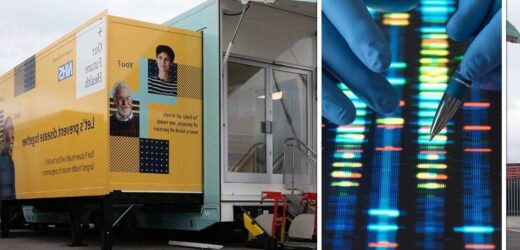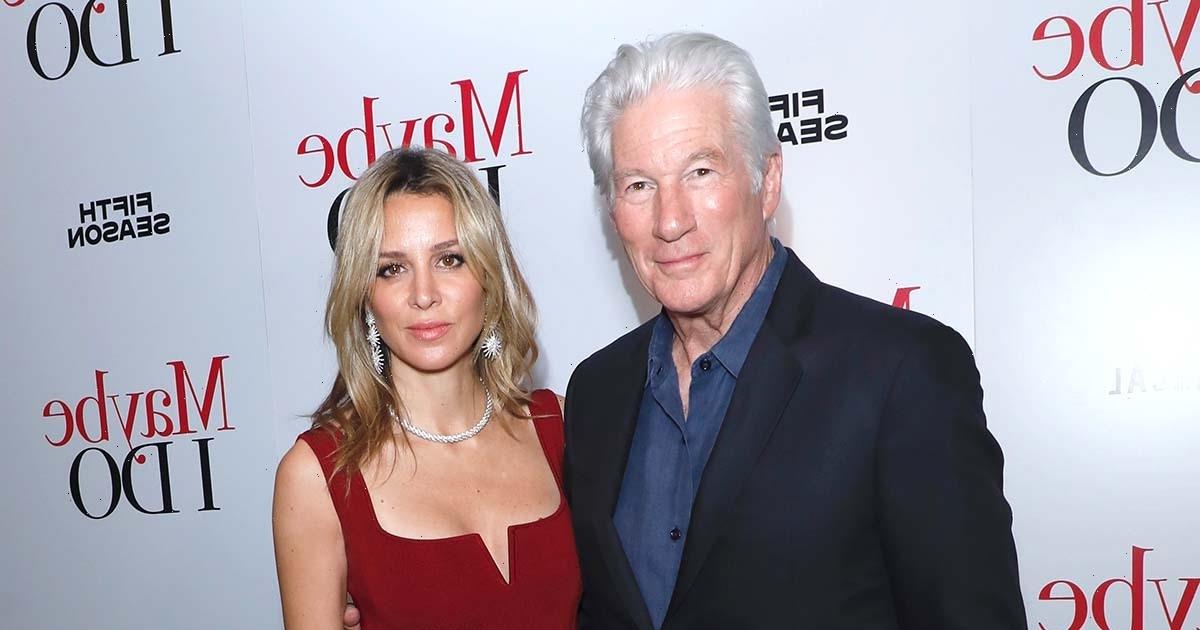Rishi Sunak faces question on NHS crisis
We use your sign-up to provide content in ways you’ve consented to and to improve our understanding of you. This may include adverts from us and 3rd parties based on our understanding. You can unsubscribe at any time. More info
The UK’s largest medical trial ever conducted — called Our Future Health — is underway, hoping to build a “detailed picture” of the nation’s health so that “future generations can live in good health for longer”.
The initiative hopes to make life-saving discoveries by detecting conditions like dementia, cancer, diabetes, heart disease, and strokes earlier.
One in ten of us needs to sign up to make a difference. Doing so will not only benefit the country and the NHS’s future, but Britons on an individual level, chief medical officer Dr Raghib Ali OBE told Express.co.uk.
Prevention over cure
The NHS is facing an existential crisis. Backlogs, Covid-19, staffing shortages, and, in particular, an ageing population, are all creating an environment bordering on disaster.
The Census 2021 results revealed that England and Wales’s population has continued to age, with more than 11 million people (18.6 percent of the total) are aged 65 or over, compared to 16.4 percent in 2011.
While we’re living longer, we’re not living better. The average male in the UK can expect to spend 16 years of their life in poor health. For females, this is higher at 20 years, according to the Office for National Statistics.
It has been argued that the NHS crisis will not simply be solved by spending more money on curing those who are already ill. Prevention through early diagnosis and intervention could hold the key to securing the service’s future and Our Future Health hopes to do just that.
Technology and diagnostics now exist to enable the early identification of and susceptibility to a variety of diseases, meaning intervention can be made at an earlier stage in order to help people stay healthy for longer. This is where you come in.


How does it work?
To join the trial you must meet two simple criteria: be over 18 and live in the UK. After signing up, volunteers attend a short appointment and fill in a questionnaire.
From mobile clinics, a blood sample and measurements are taken which are then linked to existing health records. Volunteers will be offered information on their health including their blood and cholesterol levels.
The blood sample will be analysed to get an early indication of diseases they are at risk of contracting. Those involved in the scheme will receive feedback and the opportunity to take part in “cutting-edge” research studies in the future.
While the study is still in its infancy, it’s quickly expanding. There are currently 23 clinics dotted across London, West Yorkshire, Manchester, and the West Midlands. By the summer, there will be some 80 clinics and by next year they will be in all home nations. Within three years, there will be clinics in every local authority.

Why has prevention not been prioritised before?
Due to how the NHS is run and funded — compounded by the five-year Westminster electoral cycle — the system’s priority is currently to treat acute disease and issues with there being much less investment in prevention, Dr Ali explained. But, he said: “We need to start thinking long term now and some investment now will save a lot of money in the future.”
By 2024/2025, it has been estimated that health and social care spending will amount to 40 percent of day-to-day spending from Government departmental budgets.
Dr Ali argued that the only way to change that is to decrease the amount of time that people spend in ill health and increase early intervention of diseases. In that way, he said, things like diabetes and heart disease can be stopped in their tracks or cured.
He said: “There is a lot of attention, rightly, on increasing supply: more doctors, nurses, beds, etc. We have been much less effective in how we decrease demand.”
Currently, NHS screening programmes are based on age. For example, screening for diabetes and heart disease begins at the age of 40. But in a decade’s time, Dr Ali hopes there will be more regular opportunities to screen people of all ages, based on the data collected.

The NHS’s cure
Now, the tools are there to decrease demand which is both good for patients and the NHS, meaning the service can focus on the areas where it must intervene, thus enabling it to change from a “National Sickness Service” to a National Health Service.
Our Future Health is intended to alleviate the pressure and ultimately free up the time of the currently “struggling” workforce, while also cutting the number of incoming patients and so cutting the amount of money spent.
He continued: “This project is so important for patients, healthcare professionals, and for the country in terms of its finances so that we can continue to provide a universal healthcare service free at the point of need. It really is the way that we can save the current NHS model we have.
“This is the future. But it’s a realistic future, it’s not sci-fi. It’s something that we already have the tools in place, it’s about implementation. We need to do the study to provide a good evidence base to be rolled out across the NHS within the next five to ten years.”
Our Future Health data will be combined with medical records, which will eventually be accessible via an app on your phone. This will tell the person which common chronic diseases they are at risk of and which screenings they need to ensure diseases are picked up earlier with the pharmacy becoming the primary place for preventative services.
DON’T MISS:
Hairy Bikers star Si King shares ‘exciting’ news after ‘sad’ update [INSIGHT]
What the numbers suggest about Sunak’s longevity as he marks 100 days [ANALYSIS]
Brexit hailed as ‘enormous success’ three years on – YOUR VERDICT [POLL RESULTS]

World-leading trial
The UK is unique in that it has the ability to link health-related data within a nationwide healthcare system — “an extremely important resource”, Dr Ali noted — that covers some 67 million people.
Although similar trials are being done elsewhere, such as Iceland and the US, these countries are far smaller or have a more fragmented and privatised healthcare system. And so an initiative of this kind is only possible somewhere like the UK, Dr Ali said.
Another trial conducted by UK Biobank in 2006, that Dr Ali was also involved with, examined half a million people. However, this was anonymised with the information made only available to researchers via a biomedical database rather than to patients, too.
By using the likes of the NHS, genetic and biomarker data, AI and machine learning, an algorithm will be developed that will pinpoint who is at risk not just based on their genetics, but based on every aspect of their biological makeup, such as their socio-economic status, age and habits.
In order to paint a clear picture of the nation’s health, they need five million people to sign up, giving the researchers the “statistical power” to then look at every common chronic disease in every ethnic, socio-economic, and age group in the UK.
Dr Ali added: “We’re right at the beginning. It’s not going to take decades, but it’s not going to take months, either. We’re looking at a five year time frame to start seeing benefits.”
To sign up, go to ourfuturehealth.org.uk
Source: Read Full Article


